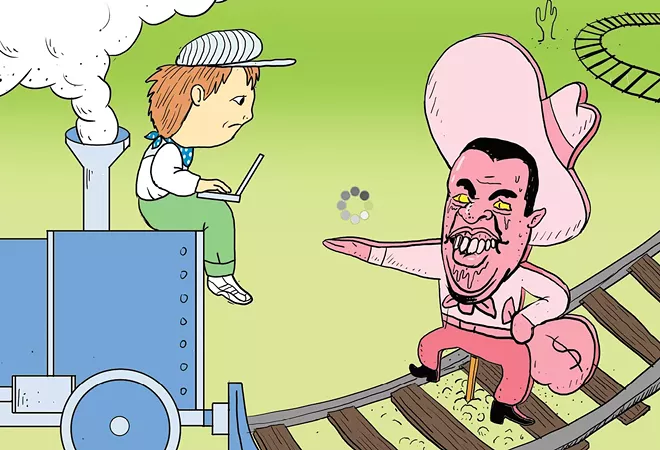A new way to connect had swept across America. People could share information, as well as move and sell goods, at a new, unprecedented pace. Almost no industry was left untouched by this revolution that built and destroyed fortunes.
At first, the leaders who built and spread this new technology were seen as visionaries. But over time their disregard for the public interest and relentless focus on profits at any cost led to the demise of their empires as the people reasserted control.
I'm referring to railroad tycoons, and the other robber barons from across industries that they empowered, but I could just as easily be describing the past and potential future history of the internet.
Earlier this month the Federal Communications Commission repealed net neutrality, which ensured people could freely share and access information online without interference. With the repeal of these rules, internet service providers can speed up access to some websites and internet applications while slowing down or blocking others — presumably based on who's willing and able to pay, limiting all of us to an internet selected by the rich.
It sets the stage for a business model remarkably similar to the railroad tycoons and other robber barons throughout history. The term "robber baron" originates from the German word Raubritter or robber knights.
In medieval times, German lords (Raubritters) would levy illegal tolls on people crossing their lands. While providing no actual value, they enriched themselves while disrupting free movement and commerce. Modern robber barons are now looking to do the same thing with the internet.
To them, I issue this warning: If you try to seize the internet for short-term profit, know that over the long-term we will seize it back with punishing new regulations that leave you worse off than if you'd never betrayed the public trust.
I declare this as a millennial, with confidence that the vast majority of my generation (and those to come) stand with me. We will not allow modern robber barons to decide which search engine we can use at certain speeds or shut off our access to breaking news and information or, God forbid, stop us from watching the latest season of The Crown on Netflix.
If you decide to build your business model around controlling how we choose to use the internet, we will rebuild our democracy around ending your business. No doubt, you will scream and holler in this not-so-distant future about how our reassertion of net neutrality is socialism or communism or whatever other 'ism' is in vogue when digital-native voters become the majority and bring back a free internet.
But while robber barons have always tried to cloak themselves in the free market, the reality is that it is what they have always feared most. The building of monopolies and trusts has always been about attempting to extinguish competition, not participate in it.
So if you take the internet, we will take it back. And in doing so, we will continue the great American tradition of busting monopolies and throwing out of office crony capitalists. We will re-democratize the internet and ensure every entrepreneur with a great idea gets a fair shot.
Or we all could agree, right now, not to start down this road in the first place. Doesn't that sound better? Your call. ♦
John T. Reuter, a former Sandpoint City Councilman, has been active in protecting the environment, expanding LGBT rights and Idaho's Republican Party politics.





















